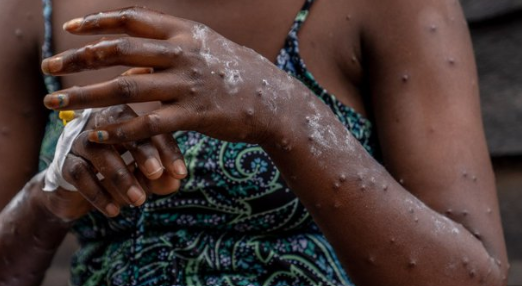Nigeria has become the first African country to receive a shipment of 10,000 vaccine doses to combat mpox, formerly known as monkeypox. This marks a significant step in the continent’s response to the current outbreak, which has affected numerous African nations. The vaccines, donated by the United States, arrived in Nigeria following the country’s proactive efforts to secure them well before the World Health Organization (WHO) declared the outbreak a global health emergency earlier this month.
Nigeria has received 10,000 doses of mpox vaccines, making it the first African country to receive vaccines combating the spread of the mpox virushttps://t.co/D4aRlz9imd
— UN News (@UN_News_Centre) August 28, 2024
Africa has been severely impacted by the rapid spread of mpox, prompting calls for a quicker response from international health agencies. Nigeria has reported 40 confirmed cases of mpox this year, though health officials estimate the actual number could exceed 700. Despite the high number of suspected cases, Nigeria has not recorded any deaths from the virus and has not detected any instances of the Clade 1b variant, a new strain identified in the eastern Democratic Republic of Congo (DR Congo) that has spread to neighboring countries.
DR Congo, which is located in central Africa, has reported over 18,000 suspected mpox cases and 615 deaths this year, highlighting the urgency of the situation. The Africa Centres for Disease Control and Prevention (CDC) estimates that 10 million vaccine doses are needed across the continent, with DR Congo being the most in need.
Although there are no vaccines specifically for mpox, the smallpox vaccine has been shown to be effective against the disease and is currently being produced by two pharmaceutical companies. The delay in getting vaccines to Africa has been attributed to the WHO’s regulatory process, which some critics argue is overly cautious. The WHO has not yet officially approved the two available vaccines for mpox, citing a lack of comprehensive data for a full review.
Professor Helen Rees, an adviser to the WHO and the Africa CDC, criticized the organization’s regulatory process, calling it “not fit for purpose in an emergency.” She emphasized the need for international health bodies to expedite their approval processes in times of urgent medical need. The WHO has recently invited vaccine manufacturers to apply for emergency licenses for mpox vaccines, a step that could accelerate future approvals.
Nigeria on Tuesday received 10,000 doses of mpox vaccines, becoming the first African country to obtain vaccines aimed at combating the spread of the new strain of mpox virus, according to the UN. As of August 10, Nigeria has had 786 suspected mpox cases and 39 confirmed cases. pic.twitter.com/qvPSwofNCG
— China News 中国新闻网 (@Echinanews) August 28, 2024
The first 10,000 vaccines were sent to Nigeria due to the country’s early and proactive response to the outbreak in 2022. At a press conference in Abuja, U.S. Ambassador Richard Mills commended Nigeria for leading a coordinated effort to address the outbreak before it escalated. The U.S. Agency for International Development (USAID) also announced a donation of 50,000 vaccine doses to DR Congo, although the delivery date has not yet been specified.
Despite this progress, many public health officials argue that the vaccine distribution could have been more timely if wealthier nations had donated more doses from their stockpiles. Professor Rees suggested that during global emergencies, countries with excess vaccine supplies should consider contributing to international efforts to help mitigate the crisis.
Key Points:
i. Nigeria is the first African country to receive 10,000 mpox vaccine doses, donated by the United States, amid the ongoing outbreak.
ii. has been heavily affected by mpox, with Nigeria reporting 40 confirmed cases and an estimated 700 suspected cases.
iii. DR Congo has reported over 18,000 suspected cases and 615 deaths, making it the most affected country in need of vaccines.
iv. The WHO’s cautious regulatory process has delayed vaccine approval, prompting calls for faster emergency licensing.
v. Efforts are underway to accelerate vaccine distribution, with Nigeria praised for its proactive response and additional doses planned for DR Congo.
Fallon Jacobson – Reprinted with permission of Whatfinger News



